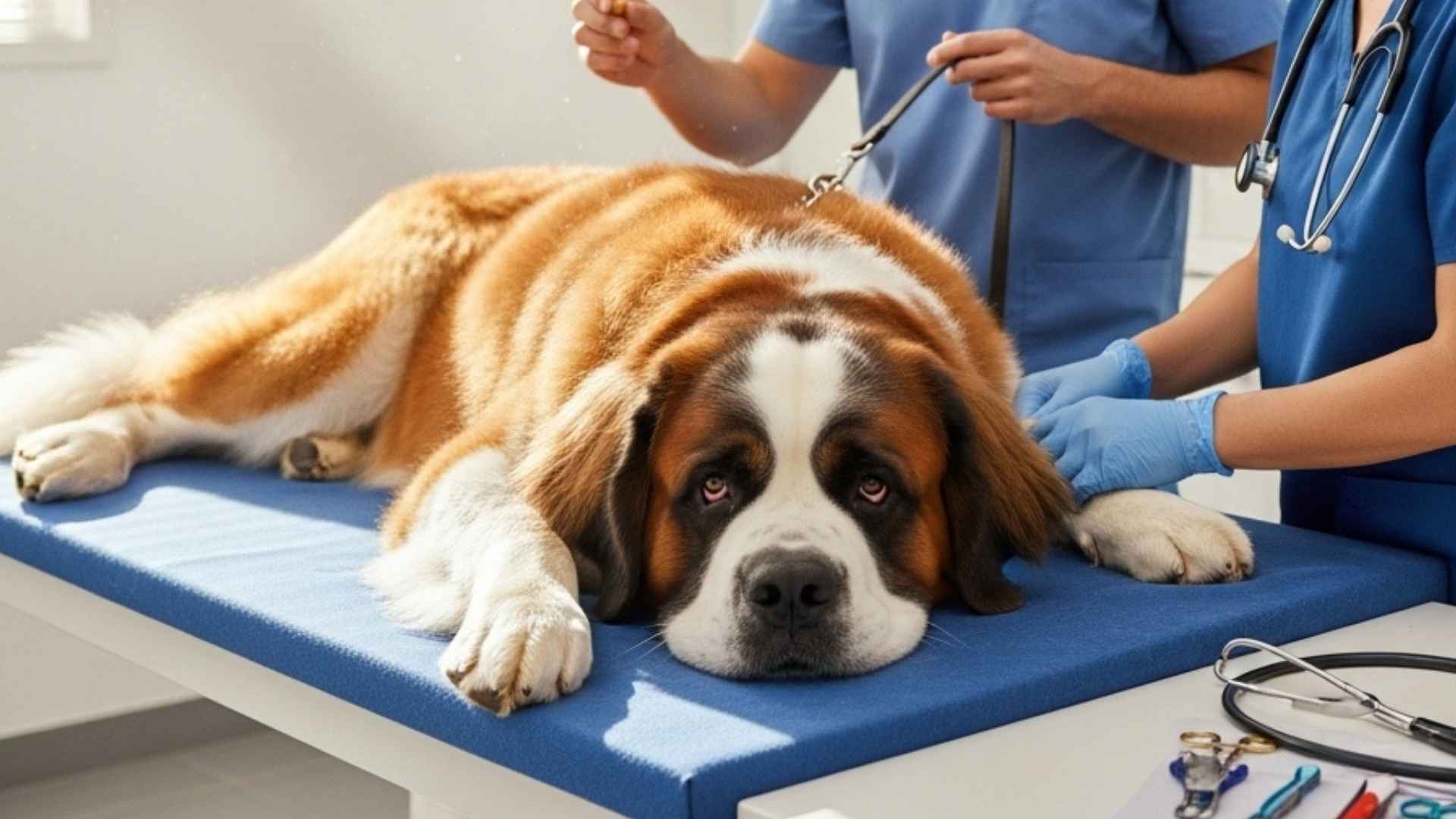Have you ever watched a massive dog slowly rise from a nap and wondered if their size comes with hidden struggles?
Large dogs can fill our homes with love, loyalty, and playful energy, yet their impressive size can sometimes bring serious health issues.
PetMD notes that one of the most common challenges is hip dysplasia, a condition where the hip joint develops incorrectly, often leading to arthritis and pain. It’s especially prevalent in large dog breeds because their rapid growth and weight put extra stress on their bodies.
Early signs, like difficulty rising or reduced activity, can signal the need for veterinary care and preventive measures.
Caring for a big dog isn’t just about meals and walks—it’s about understanding the risks and taking steps to support a healthy life. From maintaining a healthy weight to ensuring proper joint care, every choice matters for your furry friend’s comfort and happiness.
In this article, we’ll explore popular large dog breeds with health issues, the common problems they face, and what you can do to help your gentle giant live a long, happy, and pain-free life.
Popular Large Dog Breeds With Health Issues
1. Saint Bernard
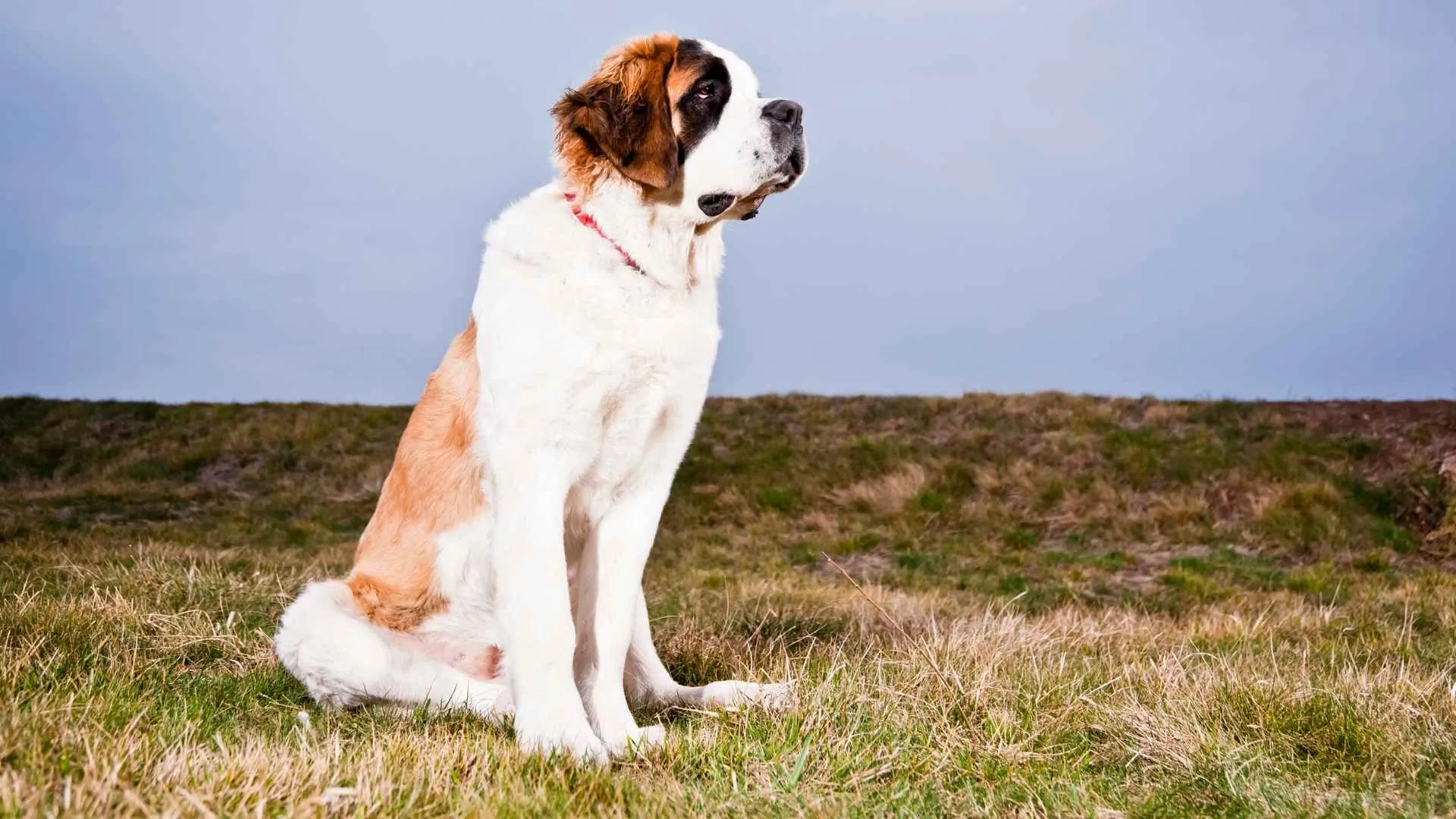
Ever wondered what it feels like to hug a fluffy tank?
That’s exactly what having a Saint Bernard in your life feels like! These gentle giants are not just big—they’re big hearts on four paws.
Saint Bernards are massive, large dogs known for their calm, friendly nature and strong protective instincts. According to the American Kennel Club, originally bred for rescue work in the snowy Swiss Alps, they are patient, loyal, and love spending time with families.
However, their rapid growth and size can make them prone to joint problems, especially hip dysplasia and elbow dysplasia. Maintaining a healthy weight, providing a balanced diet, and incorporating glucosamine supplements can help manage these health problems and support their strong frames.
Regular exercise is important, but short walks are better than long runs to avoid putting too much stress on their developing joints. These gentle giants also require routine veterinary checkups to monitor for arthritis and other age-related issues.
Anti-inflammatory medications can be prescribed in severe cases to keep pain under control, helping your Saint Bernard enjoy a happy life. Owners should also be aware of other common large dog concerns like bloat and heart problems, which are more likely in massive breeds.
Early recognition and proactive care make a huge difference in their overall well-being.
Fun Fact
Despite their enormous size, Saint Bernards were originally trained to carry small barrels of brandy around their necks to warm stranded travelers in the Alps!
2. Great Dane
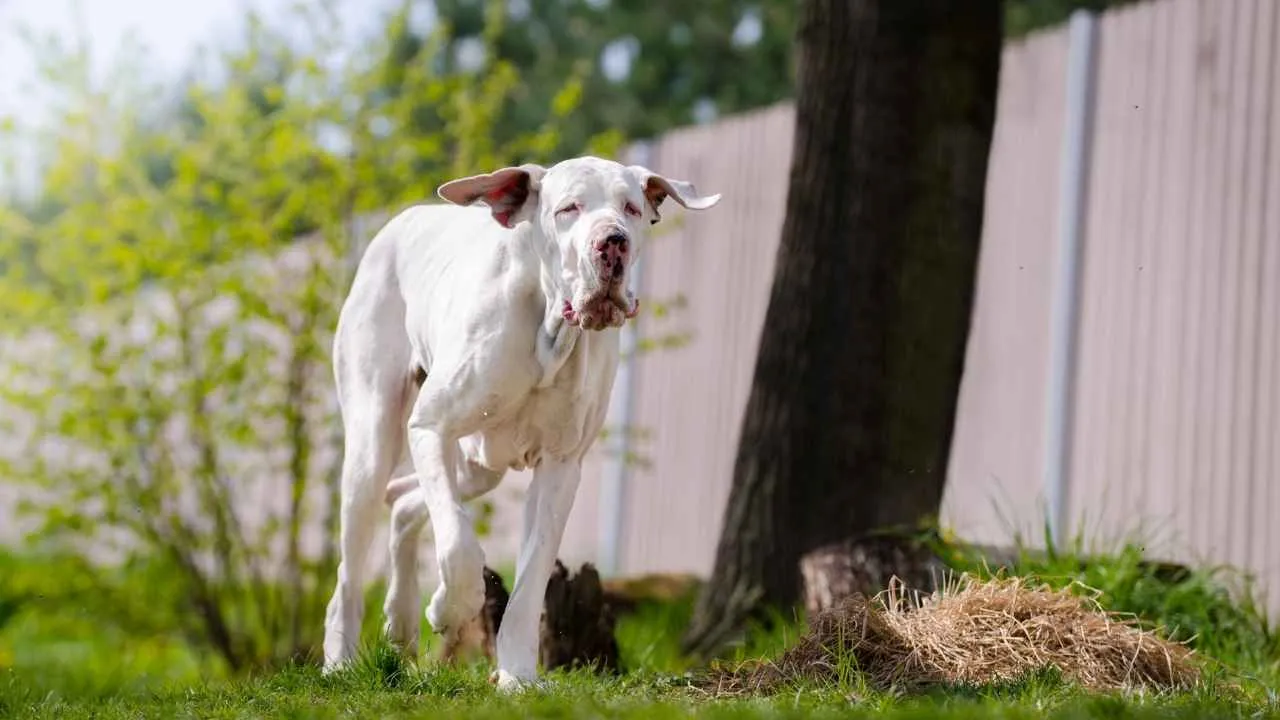
Have you ever met a dog so tall it could almost peek over your kitchen counter?
That’s a Great Dane for you—majestic, gentle, and impossibly lovable.
Known as the “Apollo of Dogs,” Great Danes are among the giant dog breeds that combine elegance with strength, as noted by Britannica. They are calm, affectionate, and make excellent family companions, especially for those who have space to accommodate their enormous size.
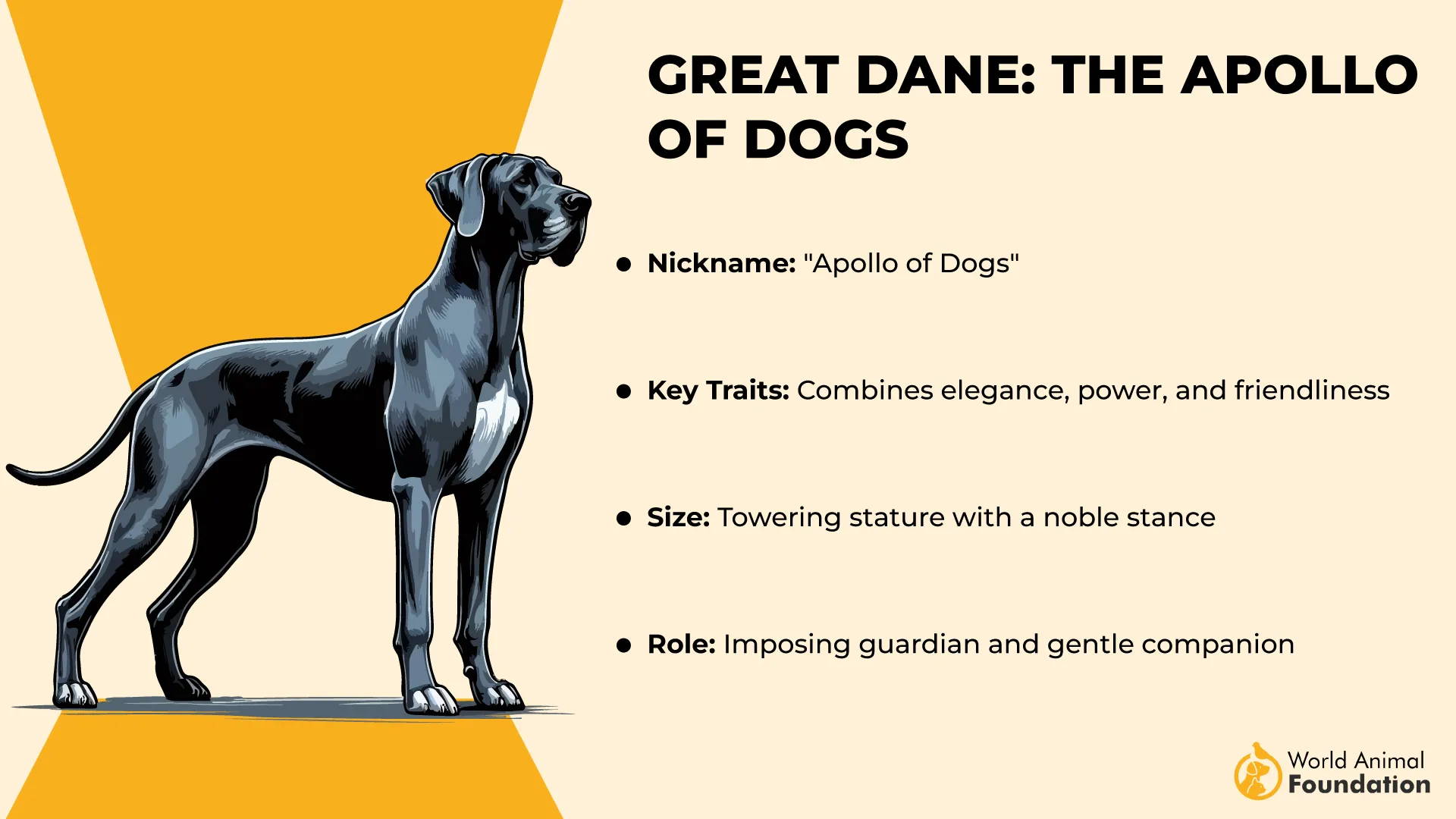
Despite their friendly nature, these large dogs are prone to serious health problems.
Dilated cardiomyopathy, a serious heart condition, affects their heart’s ability to pump blood effectively, while hip dysplasia and gastric dilatation volvulus (bloat) are common concerns that can impact their quality of life.
Owners need to monitor for symptoms such as difficulty breathing, lethargy, or signs of discomfort, as early detection can save lives. Preventive care is crucial for Great Danes.
Regular veterinary check-ups, a diet that maintains a healthy weight, and avoiding overly strenuous exercise for young dogs can reduce the risk of severe complications.
In more severe cases, surgical intervention may be necessary to treat life-threatening conditions like bloat, which can occur suddenly and without warning. With proper care, these gentle giants can lead a happy life, providing loyalty and companionship that far outweigh their challenges.
Fun Fact
These giant breeds may look intimidating due to their size, but they are often referred to as “gentle giants” because of their affectionate and playful personalities around children and family members.
3. Bernese Mountain Dog
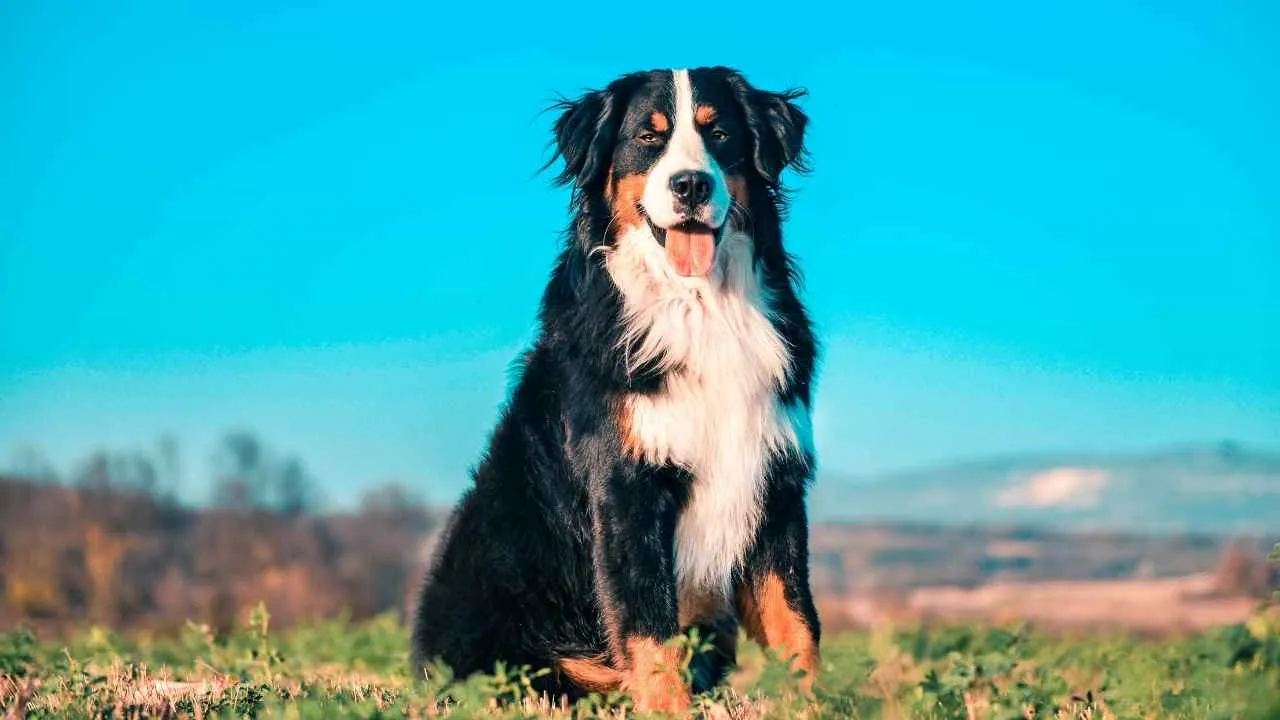
Ever seen a dog that looks like it belongs in a snow-capped painting?
That’s the Bernese Mountain Dog—stunning, fluffy, and gentle with a heart as big as its paws.
These large dogs are known for their calm, affectionate personalities and their love for families. Originally working dogs in the Swiss Alps, they were used for pulling carts and guarding farms, which makes them strong and hardworking.
However, their size and genetics make them prone to health problems, including hip dysplasia, elbow dysplasia, and arthritis. Early detection is important, so regular veterinary checkups are essential.
Keeping them at a healthy weight and providing a balanced diet can also help reduce the strain on their joints and improve their overall mobility. Bernese Mountain Dogs are prone to critical conditions like cancer and joint issues in severe cases. Choosing a reputable breeder is key.
Breeders who screen for genetic conditions can help ensure a healthier puppy, giving your family a companion that can enjoy a long and happy life. Even with their potential health risks, these dogs are known for their loyalty, patience, and ability to bond deeply with people.
Fun Fact
Bernese Mountain Dogs have a natural love for cold weather—they thrive in snowy climates and enjoy outdoor activities that keep them active and engaged.
4. Irish Wolfhound
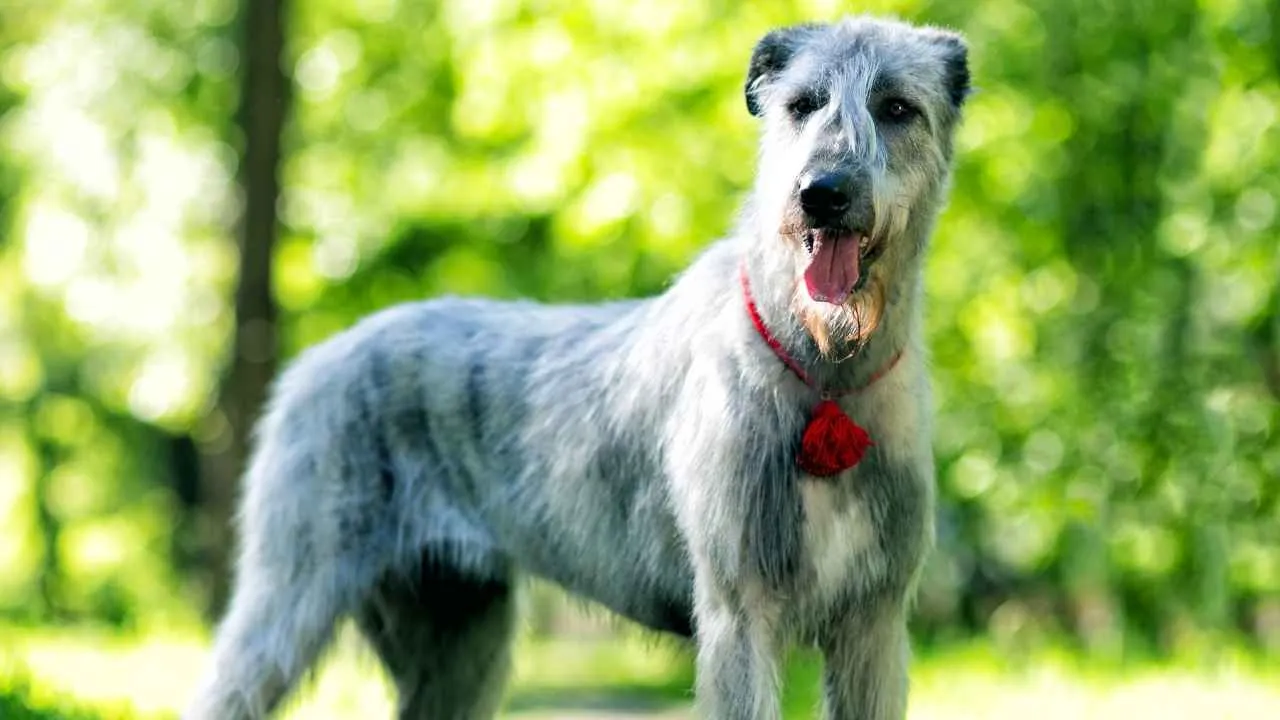
Have you ever met a dog so tall it could almost look you in the eye while you’re standing?
That’s the Irish Wolfhound—graceful, gentle, and impressively towering.
These giant breeds are among the tallest dog breeds in the world, known for their calm temperament and friendly nature. Originally bred for hunting large game like wolves, they are intelligent and loyal companions. However, their size comes with certain health problems.
They are prone to dilated cardiomyopathy, a serious heart condition where the heart struggles to pump blood effectively, and joint problems due to the stress of supporting a large frame.
Maintaining a healthy weight, providing proper nutrition, and regular checkups with a veterinarian can help monitor for early signs of heart rhythm issues and other complications.
Caring for an Irish Wolfhound also means being mindful during their puppy stage. Over-exercising while their bones are developing can worsen joint issues, so structured, gentle activity is key. With attentive care, these giants can enjoy a fulfilling life filled with love and family companionship.
Their gentle personality often surprises people, proving that size isn’t everything when it comes to being a loyal friend.
Fun Fact
Despite their hunting history, Irish Wolfhounds are excellent couch companions—they love lounging with their families just as much as running outdoors.
5. Weimaraner
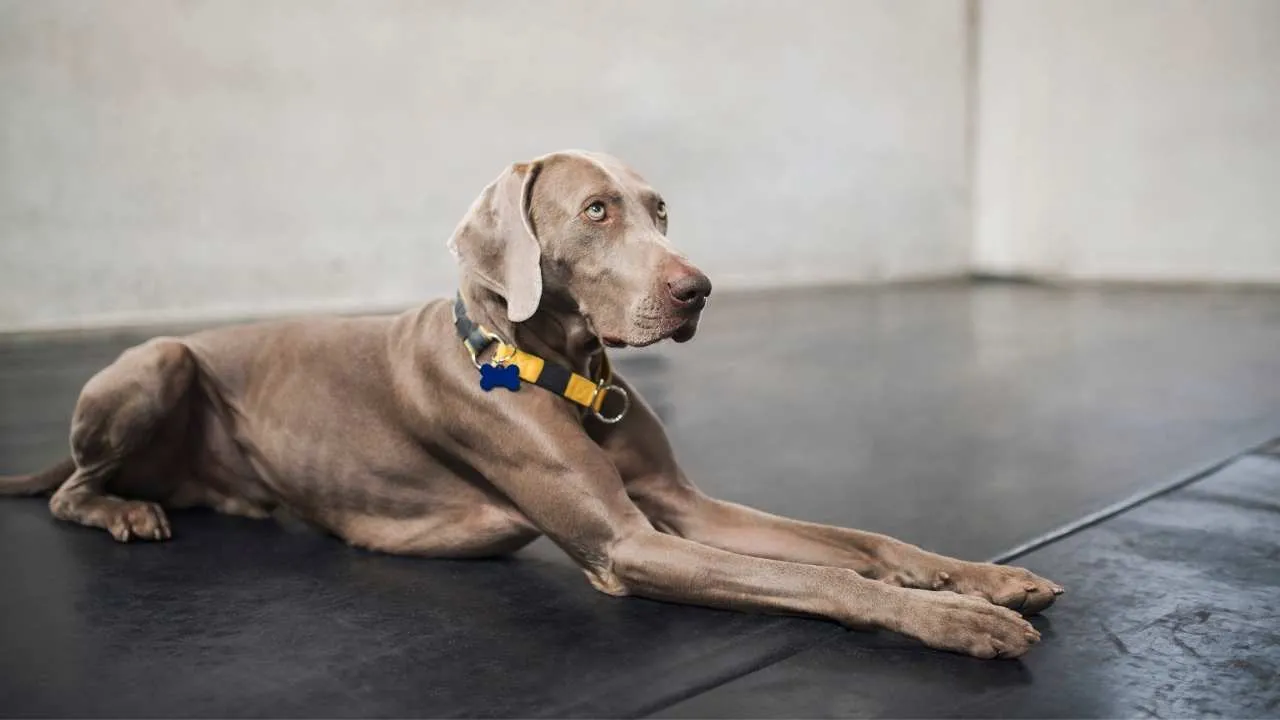
Ever met a dog that looks like it’s ready to sprint at a moment’s notice, even while napping?
That’s the Weimaraner—sleek, energetic, and full of personality.
Weimaraners are large dogs known for their athleticism and intelligence. They are affectionate, loyal, and bond deeply with their families. However, their size and activity levels make them prone to certain health issues, including hip dysplasia, elbow dysplasia, and stomach fills such as bloat.
Maintaining a healthy weight and avoiding excess weight is essential to reducing stress on their joints and preventing complications. A balanced diet and proper treatment when problems arise can significantly improve their quality of life.
Caring for a Weimaraner also involves regular veterinary visits and keeping an eye on symptoms like lethargy, vomiting, or difficulty moving, which can indicate underlying health concerns.
With proactive care, these dogs thrive as active companions, enjoying both outdoor adventures and cozy family time. Their energy and loyalty make them unforgettable, even if their size demands attentive care.
Fun Fact
Weimaraners have a unique silver-gray coat that is almost velvety to the touch, making them one of the most striking large dog breeds around.
6. Dogue de Bordeaux
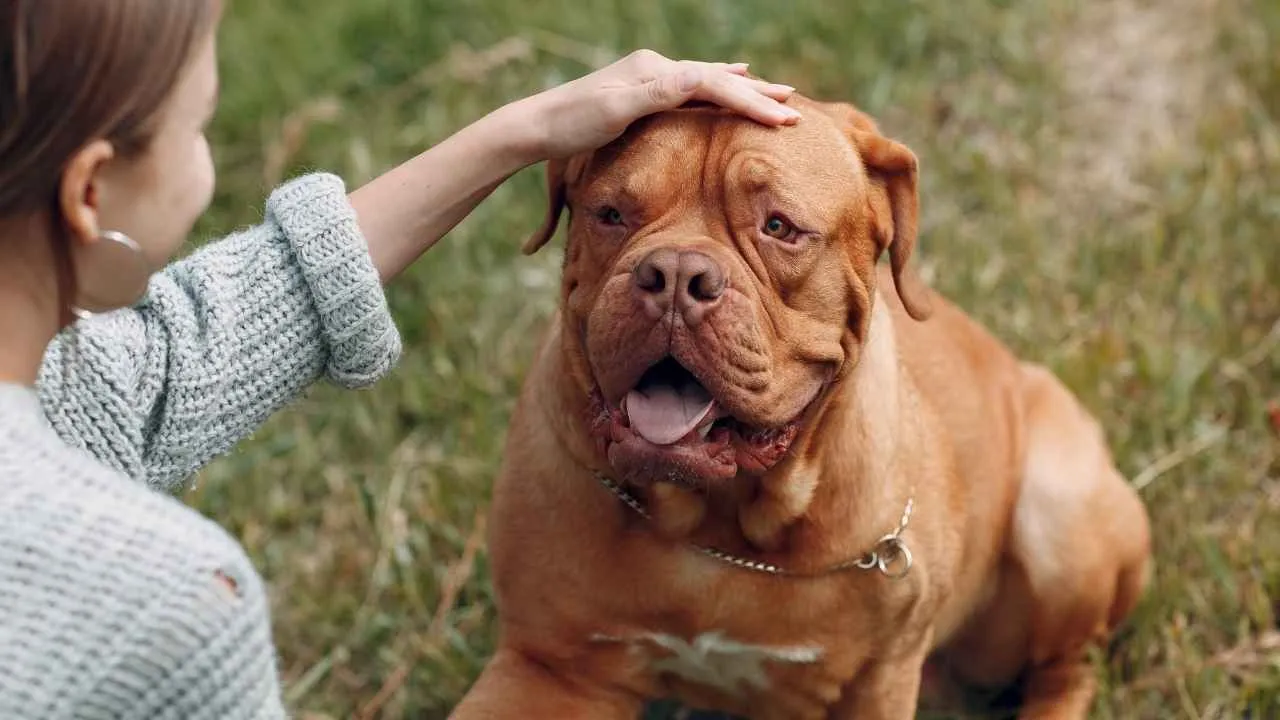
Ever wondered what it feels like to have a loyal bodyguard who also loves cuddles?
That’s the Dogue de Bordeaux—a big dog with a gentle heart and an imposing presence.
These large dog breeds are muscular, affectionate, and incredibly devoted to their families. However, their size can make them prone to several health problems. Common issues include hip dysplasia, heart problems, cherry eye, and difficulty breathing.
Owners should pay attention to symptoms such as lethargy, coughing, or eye problems. Routine veterinary care is essential, and treatments like artificial tears or antibiotic eye drops can protect the dog’s vision and comfort.
Managing a Dogue de Bordeaux also includes keeping a healthy weight to reduce strain on joints and the heart, providing a comfortable environment, and ensuring moderate exercise. While they may appear intimidating, these dogs are often gentle with children and thrive on family interaction.
With proper care, they can enjoy a happy life, making their massive size a true advantage in protection and companionship.
Fun Fact
The Dogue de Bordeaux is one of the oldest French breeds, historically used to guard property and hunt large game—yet today, they are known for their loving, family-oriented nature.
7. Pyrenean Mastiff
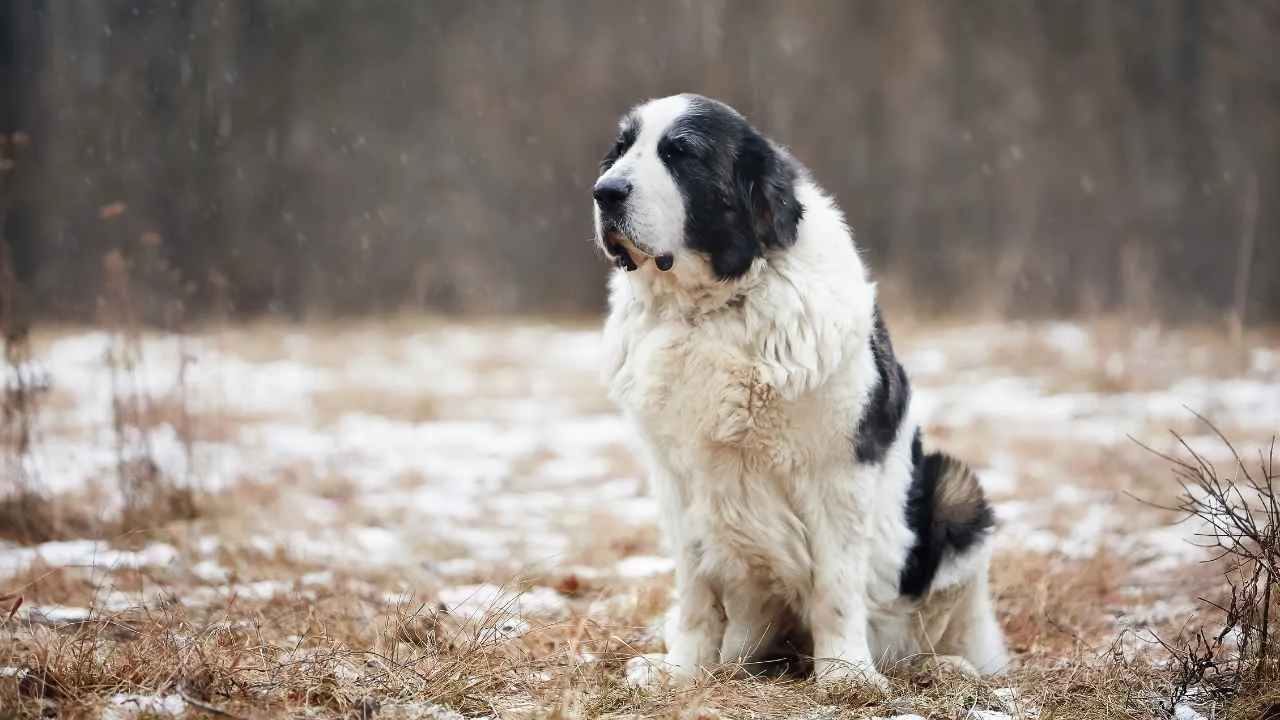
Ever wondered what it’s like to live with a gentle giant that can double as a guardian?
That’s the Pyrenean Mastiff—a giant breed that combines calm, affectionate companionship with natural protective instincts.
These large dogs are known for their loyalty and gentle nature with families, but their size makes them prone to joint problems, including arthritis and hip joint issues. As they age, some may experience pain that affects mobility, so regular veterinary visits and monitoring are essential.
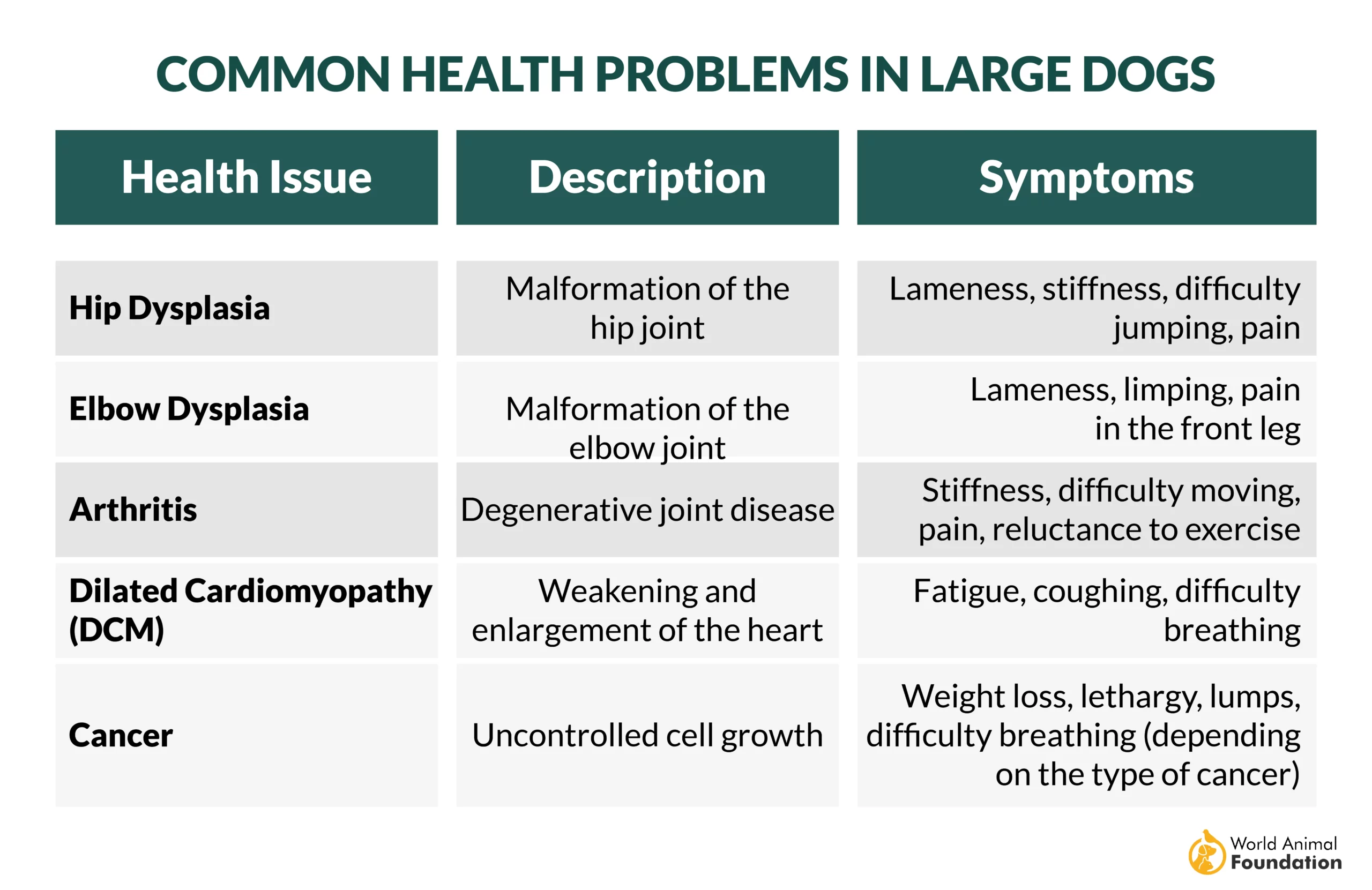
A healthy diet, along with glucosamine supplements or anti-inflammatory medications in severe cases, can significantly improve their comfort and overall well-being.
Caring for a Pyrenean Mastiff means balancing gentle exercise, proper nutrition, and attentive health monitoring. These dogs thrive when included in family life and enjoy activities that allow them to stretch their legs safely.
With proactive care and attention to their joints, they can enjoy a happy life while offering unmatched loyalty and companionship.
Fun Fact
Pyrenean Mastiffs have historically protected livestock in the Pyrenees mountains, often working in pairs to guard sheep from predators—yet they are surprisingly gentle with children and family members at home.
Conclusion
Caring for large breeds comes with unique challenges, as many of these dogs are prone to health issues such as joint problems, hip dysplasia, and heart complications.
Early detection and proactive care can make a huge difference, especially during a puppy’s growth stage.
Regular veterinary checkups, a healthy life supported by a balanced diet and appropriate exercise, and timely treatment options—including surgery in severe cases—can help manage pain and maintain your dog’s overall well-being.
While these challenges may seem daunting, many dogs thrive when given proper attention and care.
Understanding the common conditions in the most common breeds like Saint Bernards, Great Danes, Bernese Mountain Dogs, Irish Wolfhounds, Weimaraners, Dogue de Bordeaux, and Pyrenean Mastiffs empowers owners to act quickly and responsibly.
With consistent care, these gentle giants can enjoy a happy life, bringing joy, loyalty, and companionship to your home for years to come.


